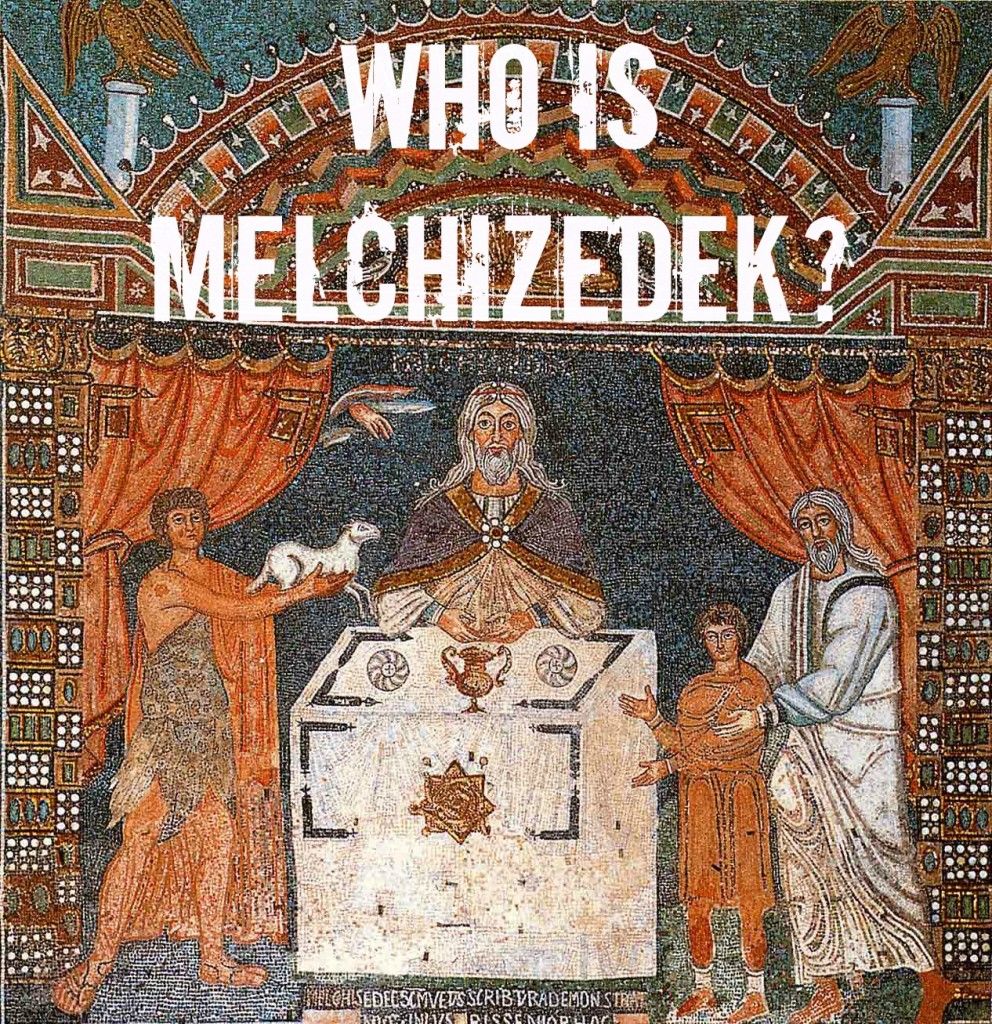Melchizedek is only mentioned in three books of the Bible, but people still speculate upon his character.
Melchizedek is mentioned only in Genesis, Psalms and Hebrews. He is introduced as a king during the time of Abraham. The Old Testament is then silent about him until the book of Psalms which alludes to him when describing a royal priesthood. Later in New Testament Hebrews he is shown as a case study for the priesthood of the Christ.
Interestingly, it is New Testament Hebrews that says more about Melchizedek than either of the two Old Testament books. His name is mentioned once in Genesis (14:8) once in Psalms (110:4) but all of chapter 7 of Hebrews is spent discussing his priesthood.
What makes Melchizedek such an interesting soul? Lets investigate what we know, what we think we know and speculate on some interesting possibilities. Who was Melchizedek? What was Melchizedek? Why should we care?
Who was Melchizedek?
Melchizedek is first introduced right after a war in the Bible. Abram from Ur of the Chaldeans (whose name is later changed to Abraham) was led by God to leave his home and travel to a country to his west. At one point in Abram's life story his nephew Lot is kidnapped after the King of the region, Chedorlaomer, returns home from his warfare on other countries to find five of his subordinates have rebelled against Chedorlaomer. He resumes control when he drives the five rebel kings into hiding, and takes the spoils of war from their cities. Unfortunately Lot, his family and his herds are part of those spoils of war.
Abram is NOT happy that his nephew has been taken as spoils of war and takes 318 trained warriors, beats Chedorlaomer in battle and takes Lot, and the spoils, back home with him to Canaan. On his way home Melchizedek meets Abram and blesses him.
Genesis describes Melchizedek as the King of Salem. He is ALSO described as "a priest of God Most High." A priest is someone who performs religious rituals for divine beings on behalf of people, one who is authorized to work with sacred things. Let's dig into this a bit deeper.
What was Melchizedek?
As "King of Salem" Melchizedek would have been of "noble birth" making the word king literally mean "one who is descended from noble birth, or the descendant of a divine race." Interesting. Salem was a city-state in Canaan. The word means "full complete, safe, whole, peaceful", thus Melchizedek was literally the "King of Peace", a "descendant of noble birth or of a divine race." Even his name is derived from two Hebrew words: Malak (king or ruler) and Sadaq (righteous, just, innocent). Thus, Melchizedek is, by the meanings of his name, the King or ruler of Righteousness, Justice and Innocence.
In fact, in the rebellion against King Chedorlaomer there were five kings who rebelled against the king and three loyal kings. Melchizedek remained neutral and never entered into the fighting, Salem lived up to its name indicating safety and peacefulness. Later, this city becomes known as Jerusalem, the place of safety and peacefulness, and is the home of Solomon's Temple; Solomon who's name, by the way, indicates "man of peace."
A ruler is one who controls, guides, directs, or makes to conform to a pattern." Thus Melchizedek was one who sought to control, guide, direct and conform to a pattern -- one provided by the "God Most High". The word god has long been thought to be derived from the word good, but it may also be derived from ancient word *ghu meaning "to pour", as used in the ancient phrase khute gaia meaning "poured earth" and referring to a burial mound, and may have referred to the "spirit immanent in a burial mound." One could say that he was a priest of the most high spirit immanent in, on, or above the earth. Still interesting.
Why should we care?
Melchizedek, being the King AND the Priest of the God Most High is one whose soul seeks to serve the most high spirit immanent in, on, or above the earth; AND one who seeks to guide, direct, and conform to the pattern of worship of the God Most High.
The author of Hebrews paints that, when it comes to really outstanding human beings, Melchizedek trumps Abram. Abram gives this king 10% of all of the spoils of war that he came away with.
There are, of course, a myrad of speculations, observations, and symbols that can be discussed about this mysterious soul, this individual who:
- was a King or ruler of Righteousness, Justice and Innocence.
- controlled, guided, directed, or made life actions conform to a pattern -- one provided by the "God Most High".
- was a priest of the most high spirit immanent in, on, or above the earth.
Melchizedek offers us an exemplar by which Abram, and certainly we, ought to seek to live: be aware of, respect, and seek to abide by the guidance, wisdom, and pattern given by the "God Most High" however you may name this entity.


No comments:
Post a Comment
Be thoughtful, be helpful, be civil…